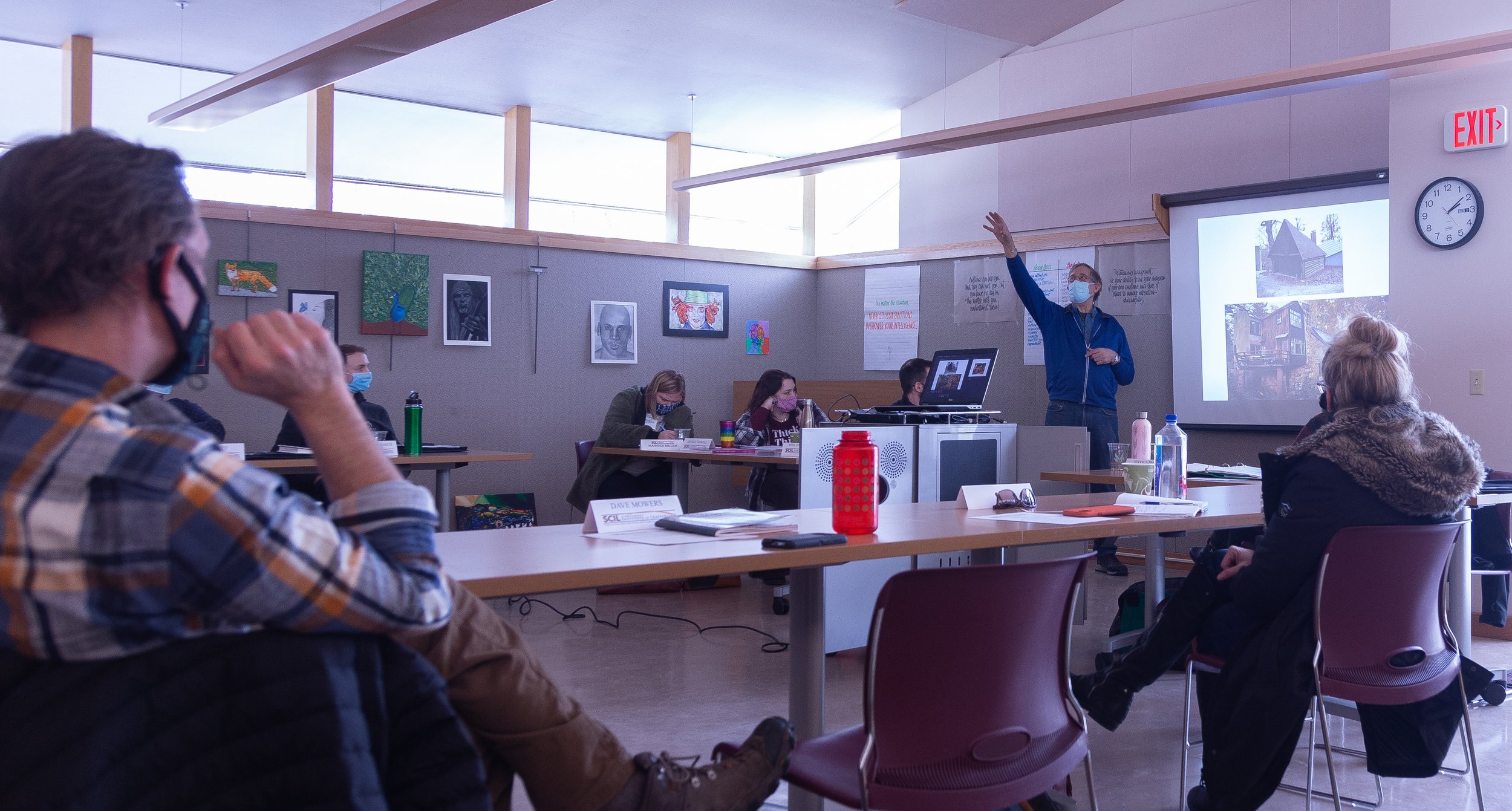CREATIVITY IS POSSIBILITY
Spring Green, WI, Feb 10, 2022 – Seventeen leaders from the Sauk County Institute of Leadership (SCIL) gathered in Spring Green for the sixth monthly session of the program. The day included a tour of the American Players Theatre (APT) followed by group discussions at the Spring Green Community Library. The session focused on the roles of creativity in leadership and the importance of cultivating emotional intelligence.
In the morning, APT Director of Communications Sara Young guided SCIL leaders through APT’s indoor theaters, rehearsal rooms, and backstage production areas. Leaders were challenged to consider the ways that various creative teams, from actors, lighting crews, and set designers to costume and wig-makers, must collaborate to realize eight productions throughout APT’s season. The tour revealed surprises, such as the craft that APT artisans take in creating stage sets in their carpentry and paint shops, or the unique wigs they create for the actors (each wig takes about 40 hours). APT employs upwards of 300 artists, production crew members, stage managers, and event assistants during the season, in addition to their year-round administrative staff.
During the afternoon, leaders discussed the book Emotional Intelligence 2.0 by Dr. Travis Bradberry and Jean Graves, and had the opportunity to take an assessment of their own emotional intelligence (EQ). EQ is measured across four categories: self awareness, self management, relationship awareness, and relationship management. Increasingly, studies show that successful leaders test for higher EQ, and that, unlike IQ, EQ skills can be learned.
Special guest speaker, community leader and master woodworker Alan Anderson, gave a presentation on the parallels between artists and leaders, and how creative problem-solving is essential to both. Like good artists, successful leaders tend to be passionate problem solvers and have great capacity to motivate others. Anderson shared, “People who accomplish great things encourage other people to get involved and welcome other people’s ideas,” (as made clear at APT). Anderson traced the lineage of artist Harvey Littleton, who initiated a glassblowing lab at UW-Madison in the 1950’s, to the success of his student Dale Chihuly, one of the most famous glass blowers of the last century, and Chihuly’s student, Indigenous artist Preston Singletary. The example spoke to the importance of leaders creating supportive, creative environments for their mentees.
The day concluded with program organizer Morgan McArthur sharing a montage of photographs he has taken over a decade, documenting landscapes, farms and places throughout Sauk County. The presentation revealed the importance of considering a situation from multiple points of view to find innovative solutions.
The next SCIL session is scheduled for March at UW-Platteville Baraboo.
-Jessie Phalen and Philip Matthews



